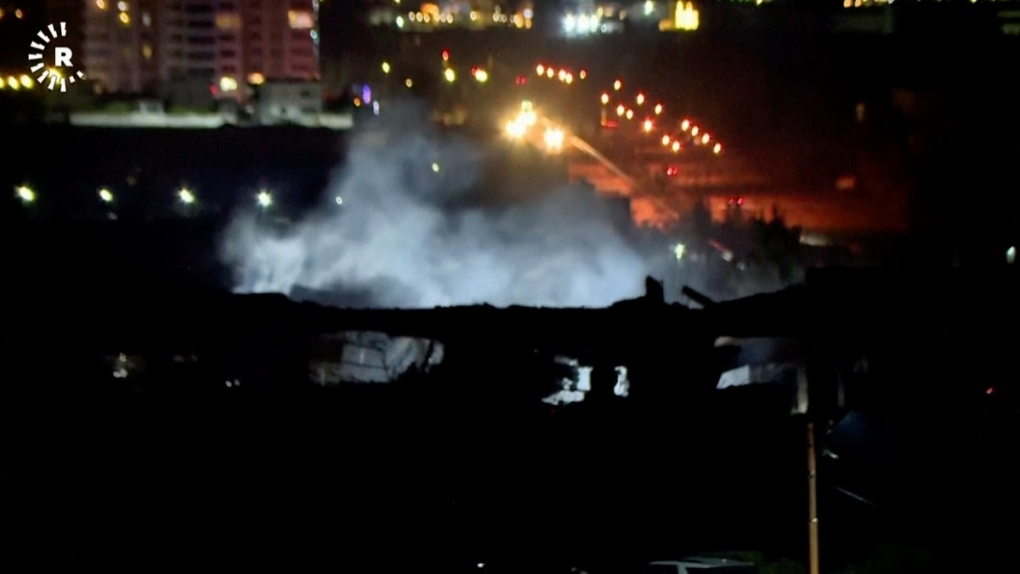
In a video supplied by Rudaw TV, smoke is seen billowing from a structure struck during an incident in Irbil, Iraq, on January 16, 2024. The image, captured from Rudaw TV footage, reveals the aftermath of a strike in the region.
In a recent development, Iran's Revolutionary Guards have claimed responsibility for attacking what they term the "spy headquarters" of Israel in Iraq's semi-autonomous Kurdistan region. The elite force also asserted that it conducted strikes in Syria targeting the Islamic State. The attacks come amid heightened tensions in the Middle East, with the conflict escalating since the beginning of the war between Israel and the Palestinian Islamist group Hamas on October 7.
The Revolutionary Guards justified their actions, stating that it was in response to the alleged atrocities committed by the Zionist regime, leading to the killing of Guards' commanders and members of the Axis of Resistance. The main Mossad espionage headquarters in Iraq's Kurdistan region was reportedly destroyed with ballistic missiles. However, Reuters could not independently verify this claim, and Israeli government officials were not available for immediate comment.
The Iranian retaliation was prompted by the killing of three Guards members in Syria, including a senior commander serving as a military adviser. The conflict has broadened its scope, involving Iran's allies from Lebanon, Syria, Iraq, and Yemen, as tensions persist since the beginning of the Hamas-Israel conflict.
The Revolutionary Guards pledged to continue their offensive operations until avenging the last drops of martyrs' blood, emphasizing their commitment to retaliation. The strikes targeted a residential area near the U.S. consulate in the Kurdistan region's capital, Irbil. The Guards also claimed to have fired ballistic missiles in Syria, targeting the perpetrators of terrorist operations, including the Islamic State.
The U.S. State Department condemned the attacks near Irbil as "reckless," clarifying that no U.S. facilities were targeted, and there were no U.S. casualties. The spokesperson for the White House National Security Council highlighted the imprecise nature of the strikes while expressing support for the sovereignty, independence, and territorial integrity of Iraq.
Iraqi Kurdish Prime Minister Masrour Barzani condemned the attack on Irbil, labeling it a "crime against the Kurdish people." The strikes resulted in civilian casualties, including the death of Kurdish businessman Peshraw Dizayee and members of his family. At least four civilians were killed, and six were injured in the attacks, according to the Kurdistan government's security council.
Iran has previously conducted strikes in Iraq's northern Kurdistan region, claiming the area serves as a staging ground for Iranian separatist groups and agents of Israel. Baghdad has attempted to address Iranian concerns by relocating some members in the border region as part of a security agreement reached in 2023.
In summary, Iran's Revolutionary Guards have claimed responsibility for attacking Israel's alleged spy headquarters in Iraq's Kurdistan region, citing retaliation for the killing of Guards members. Tensions in the Middle East have heightened, involving multiple actors since the beginning of the Hamas-Israel conflict.















